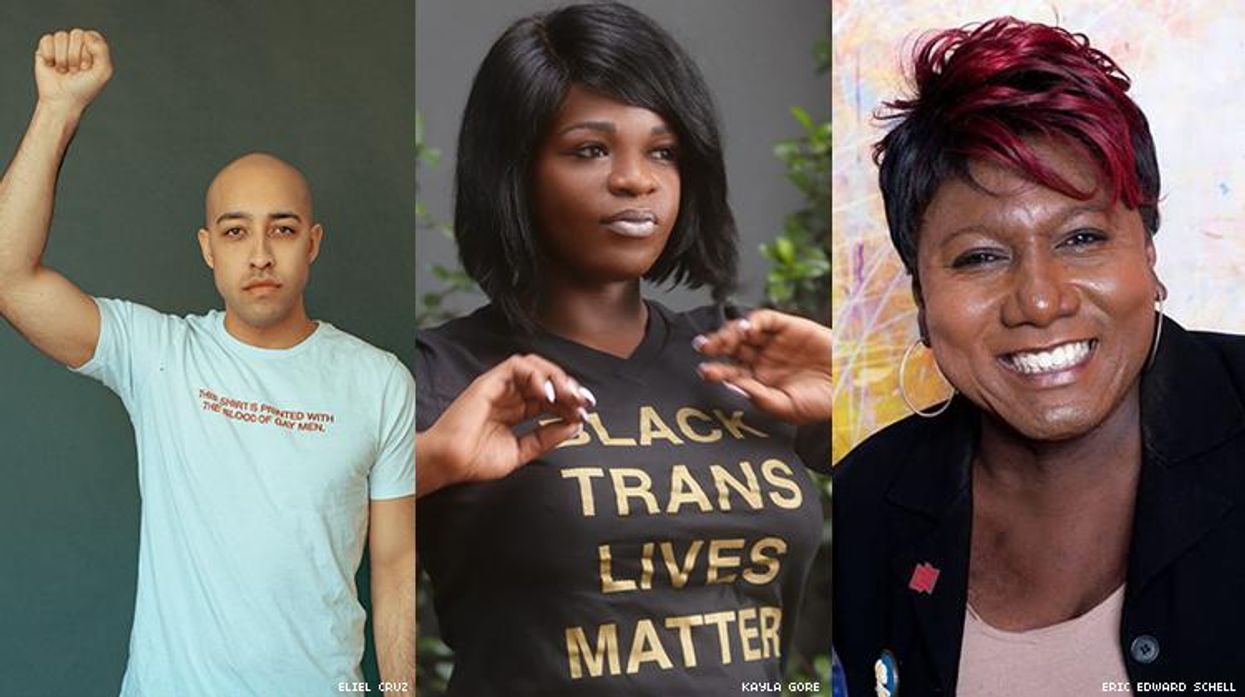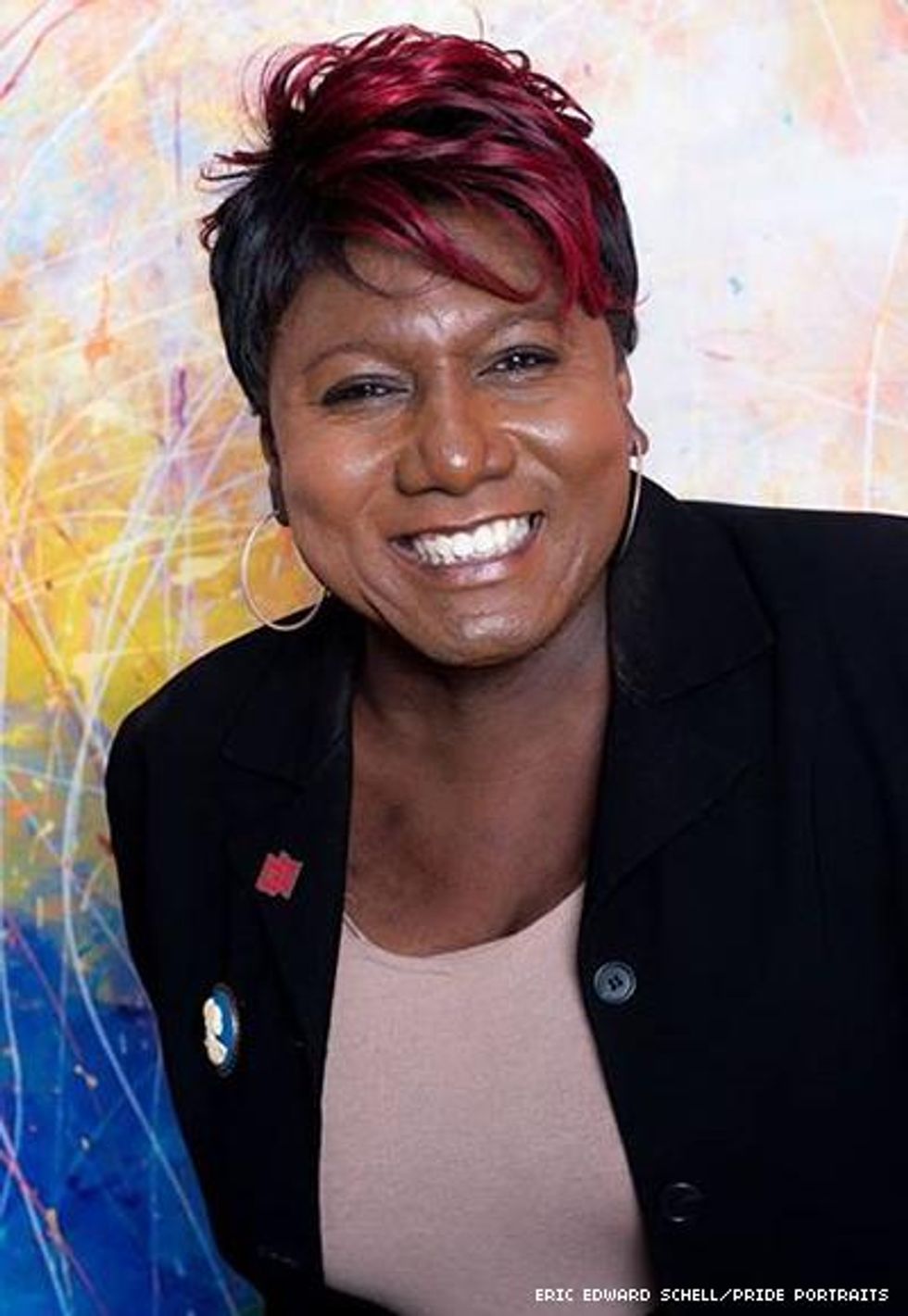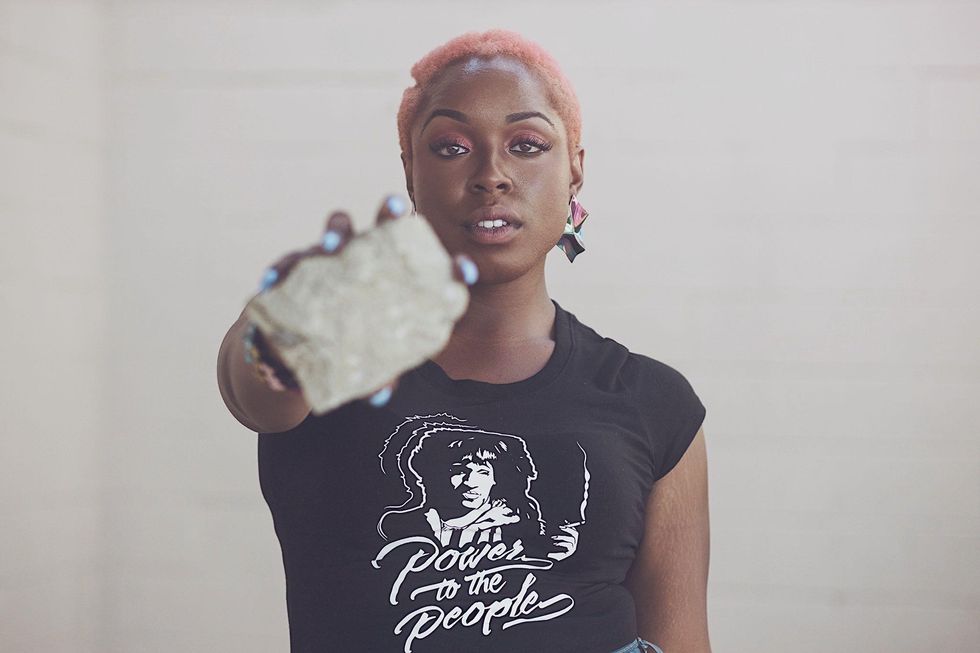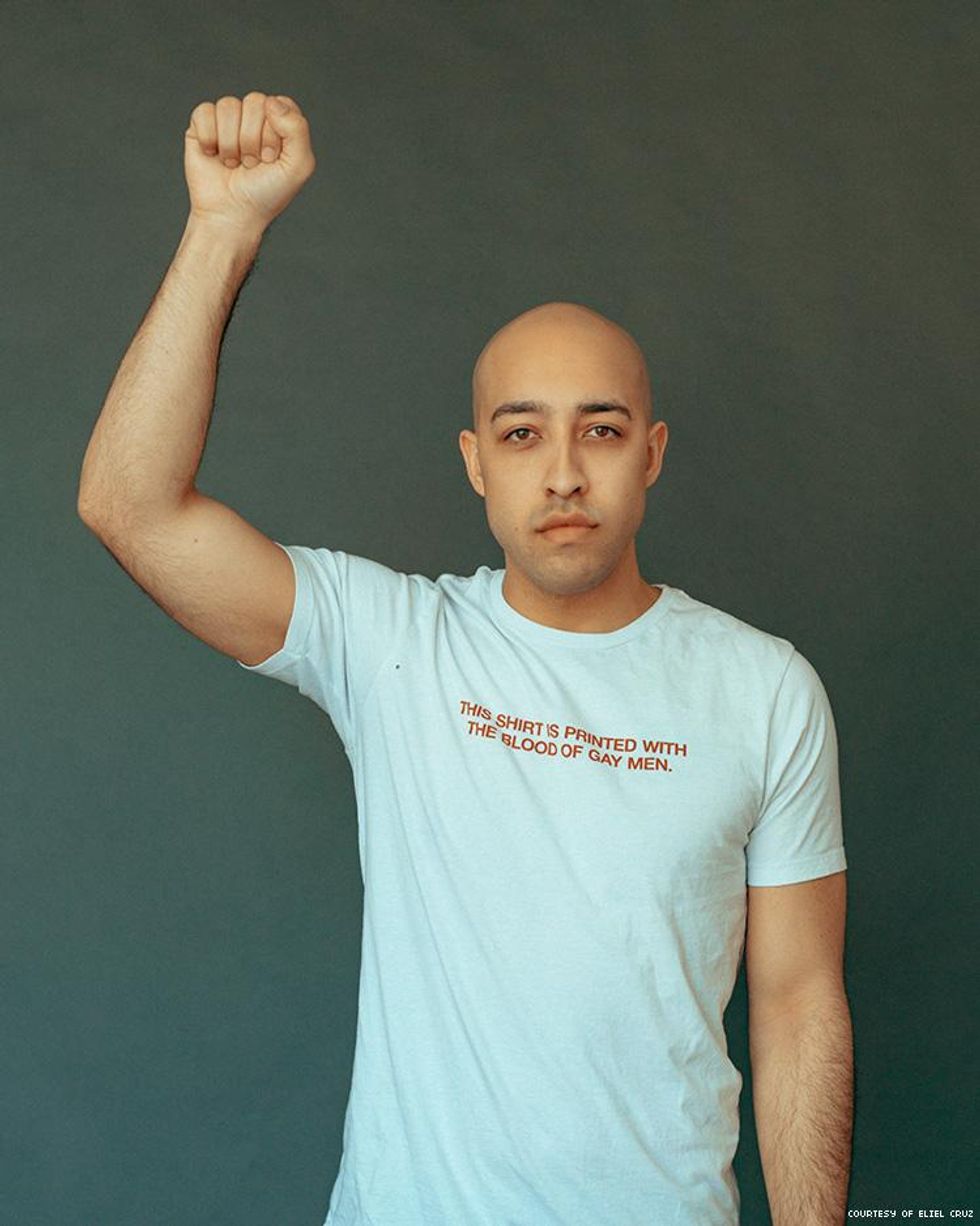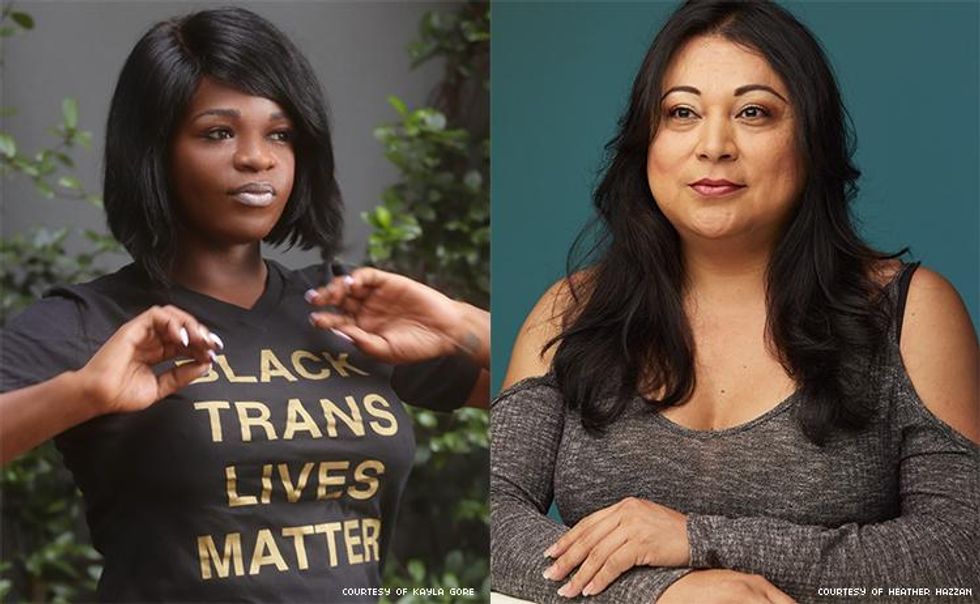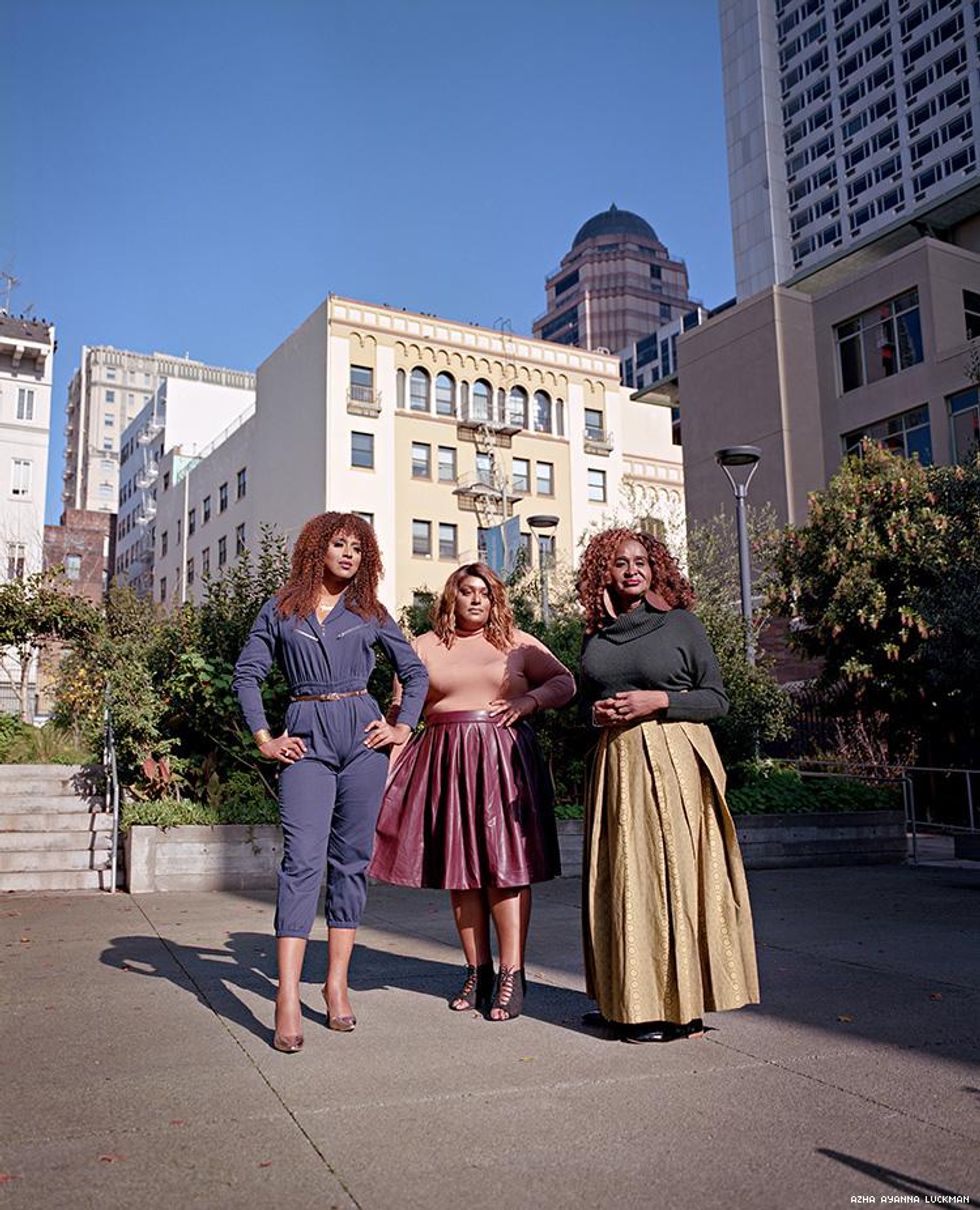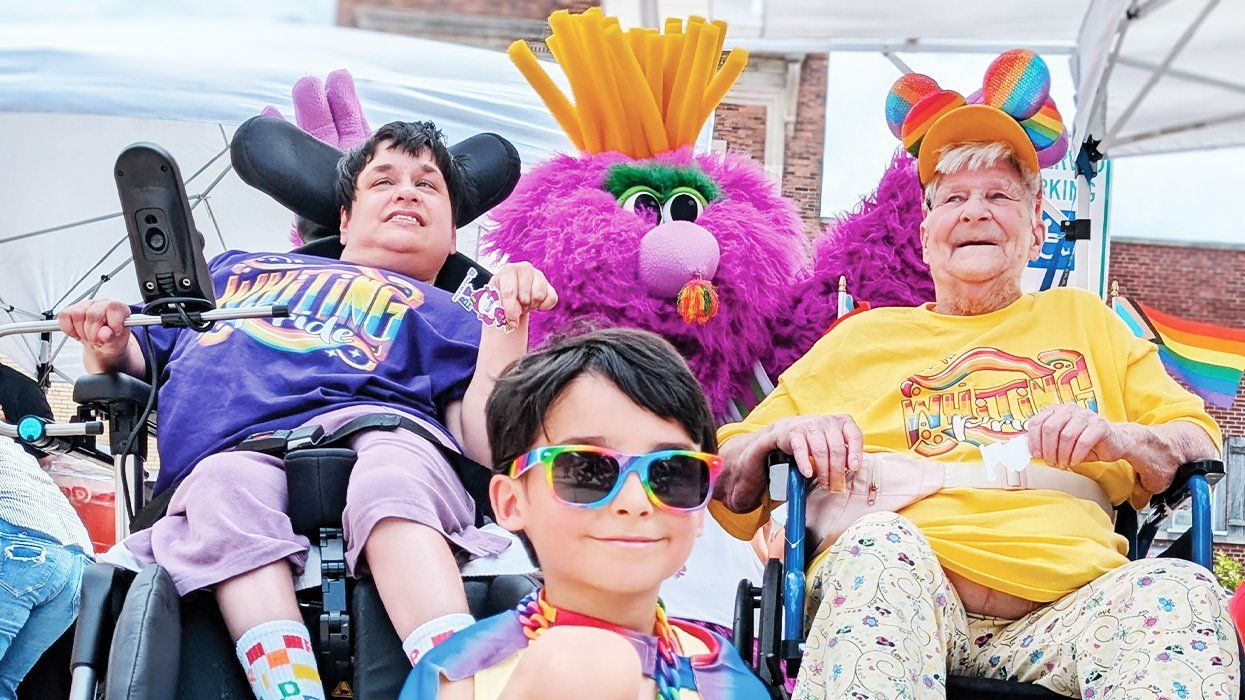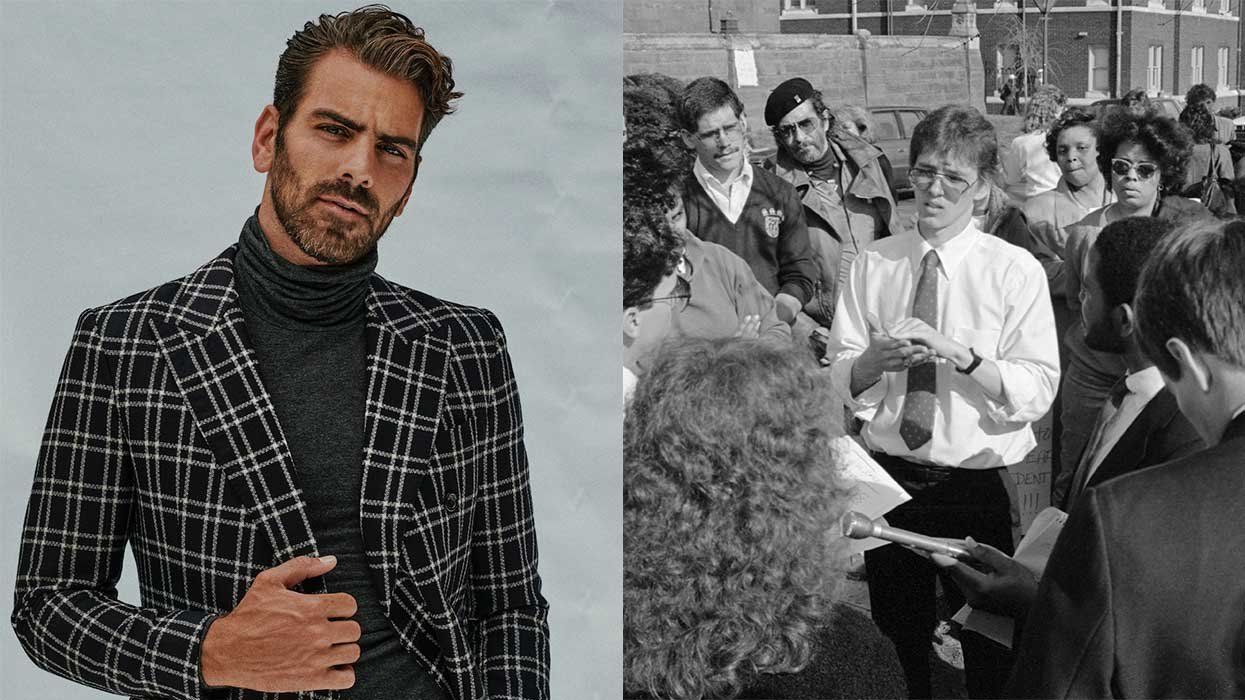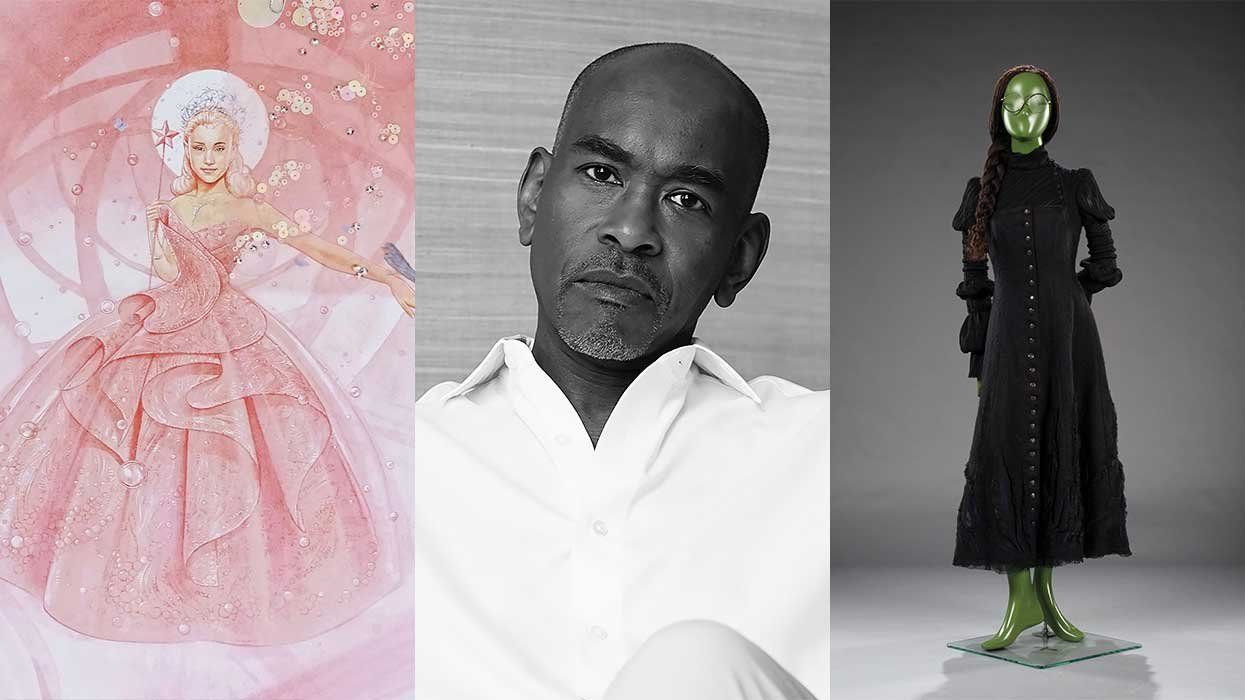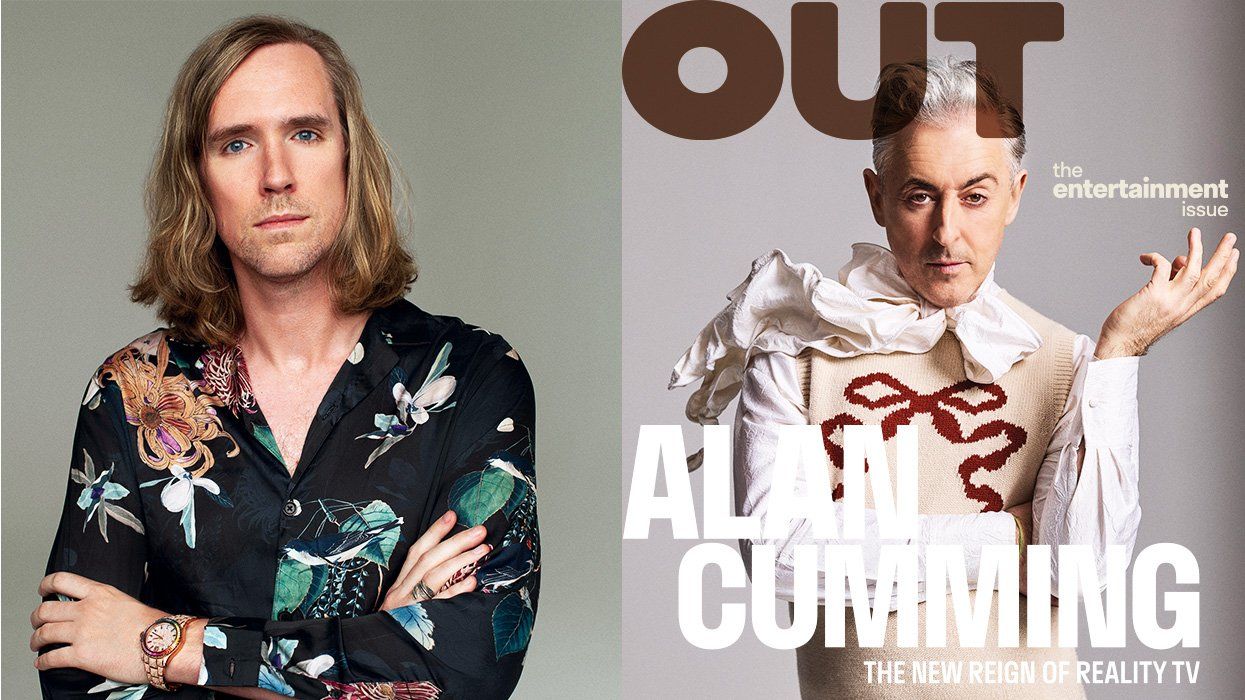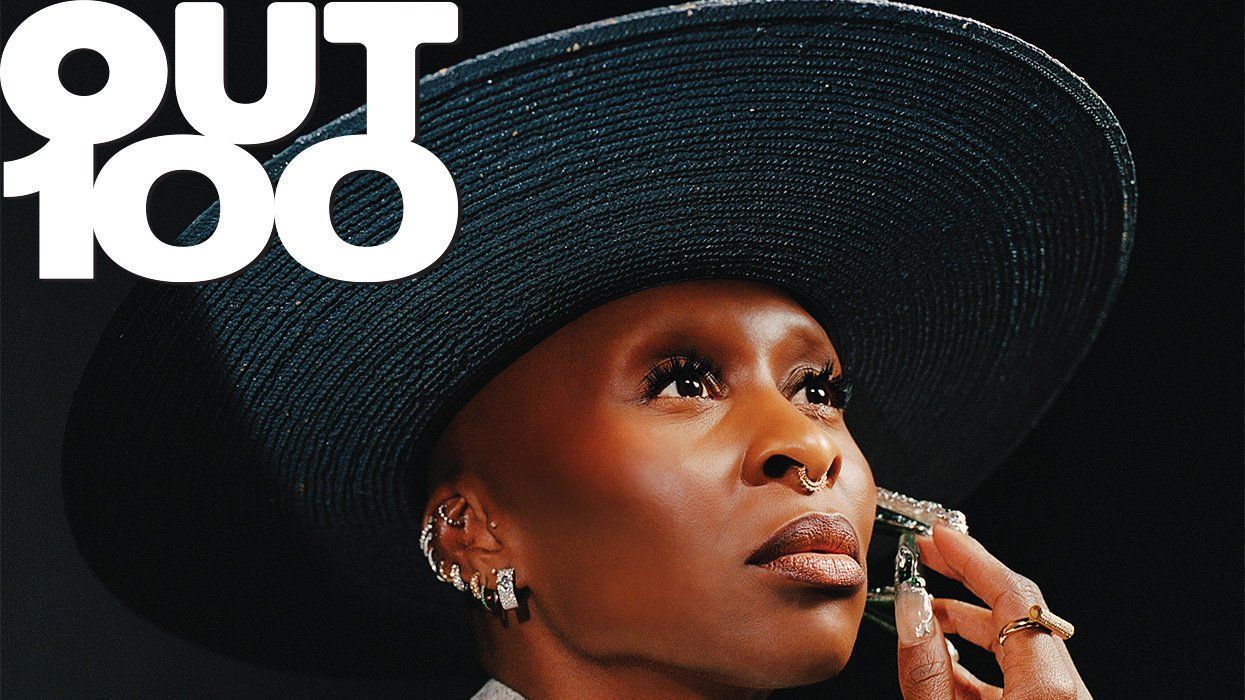The "epidemic of violence" that Black transgender women and other trans women of color (TWOC) face continues to be little more than a refrain in 2019. Whether peppered in speeches by elitist non-Black, cisgender executive directors at major organizations still basking in the afterglow of the passage of marriage equality, or used by presidential candidates vying for our community's votes, the plight of TWOC is often tokenized, but never prioritized.
As we end another year of increased transmisogynoir -- a term coined by social critic Trudy as the specific oppression of trans women and transfeminine people of color -- it's not enough to honor the women we've lost with platitudes, social media posts, or thoughts and prayers. Instead, we need the rest of the LGBTQ+ community and our allies to make a deep commitment to keeping us alive--specifically by trusting our leadership and our solutions. Here, we've identified a 13-step plan to ending the epidemic, crafted, in part, from the expertise of leading figures who do this work daily.
1. Prioritizing Safety + Security
We must prioritize ending the epidemic of violence plaguing TWOC as a central goal of the LGBTQ+ community and movement. This means politicians and organizations who consider themselves "LGBTQ+ friendly" or "allies" must be made aware of the very severe circumstances facing TWOC, and Pride campaigns that include donations must prioritize organizations that do work specifically to help our community.
2. Defining Violence
We must accept a holistic scope of violence for TWOC that includes domestic, intimate partner, and state violence. So often, when a TWOC experiences violence in state custody (whether in prisons or detention centers), would-be allies resist holding these systems accountable and don't consider these instances as carrying the same level of importance as interpersonal conflicts.
3. Media Competency
We must accurately report on victims' identities and the circumstances surrounding their instance of violence, and media accountability when these things are wrong. Often, trans victims face essentialist notions about their genitalia, and/or biased reporting on the activities, behavior, or criminal record. In some stories, these are all factors that journalists attribute to their untimely death.
"One of the reasons that I started [reporting on our] trans siblings being murdered was because I was tired of the poor reporting on it," says Monica Roberts, who founded TransGriot in 2006. This award-winning blog is often the first outlet to respect a trans victim's identity and chosen name correctly. She dedicates hours behind a computer screen, cross-referencing police reports with the testimonies of people who actually knew the true identities of the victims.
Over the years, Roberts has maintained a consistent track record of independent reporting, which means she's often the first news source for larger mainstream outlets on the epidemic. Support her work at transgriot.blogspot.com.
4. Accountability
We must hold perpetrators of violence accountable. In so many cases, police departments fail to adequately pursue potential leads, which results in few assailants actually being held responsible. Furthermore, the criminal justice system is often the sole option for recourse--however, more alternatives that include restorative, rehabilitative, and healing justice modalities need to be developed beyond the incarceral system in order for "justice" to truly be served.
5. Political Education
We must develop a "community curriculum" and teach political education on the oppression of TWOC, the origins of it, how it is enacted, and how we can end it together.
6. Economic Empowerment
We must expand employment opportunities for TWOC, especially those who are low-income. Every TWOC may not desire to do advocacy work, but LGBTQ+ organizations and corporate initiatives dedicated to the community are great places to start with new recruitment opportunities that would specifically benefit from our lived experience and expertise.
7. Leadership Development
We must invest in the leadership of TWOC to tackle anti-violence work by donating to organizations and initiatives led by us, supporting the organizing spaces and events created by us, and elevating our voices. One such organization is Solutions Not Punishments Collaborative (SNaPCo), a Black trans- and queer-led organization based in Atlanta, Georgia, that focuses on leadership and campaign development with an emphasis on divestment from the prison-industrial complex.
Since 2015, Executive Director Toni-Michelle Williams has trained other Black trans people to develop solutions for the ever-present threats of violence plaguing the community. She founded the initiative's Atlanta Trans Leadership internship, a 16-week course steeped in political education on mass criminalization and transformative organizing.
Through SNaPCo's grassroots sensibility and a "practical abolition" framework, which requires analysis and strategy "inside our current context and will fight for radical reforms that divest from the PIC and lay the groundwork for true abolition," the initiative has led campaigns to improve the conditions for sex workers by striking down a discriminatory ordinance, developing a pre-arrest diversion program to limit police profiling, and repurposing a local jail as a wellness center to better serve the community.
"It is so important for people to invest in Black trans leadership because we are the embodiment of transformation," Williams says. "The more that we have space, time, and resources to hone in on what is magical, special, and unique about our experiences, the more we'll be able to flourish."
8. Leadership Accountability
We must demand that all leaders (whether in community or political) are fighting explicitly in the interest of TWOC--this means making space for us during debates, presidential forums, town halls, fundraising events, and beyond.
9. Reallocating Resources
We must demand that national LGBTQ+ nonprofits and initiatives regularly release information on how their work transforms conditions for TWOC. If these organizations--many of whom count millions of dollars in fundraising each year--elevate what is happening to us, they should be transparent about how their programming, funds, and resources actually impact the community. And if it turns out that an organization's work doesn't actually aid the most marginalized groups, they should rework their programming and budgets accordingly.
The Anti-Violence Project sets a powerful example by elevating the voices of victims and the people in their lives. For Director of Communications Eliel Cruz, a key player in mobilizing the community around Layleen Cubilette-Polanco, utilizing digital platforms and mainstream media to clarify the context of violence for trans women of color is paramount. Much of the framing of the stories and information about victims is shaped by the work that he leads.
"I approach my work with communications through an organizing lens. I understand the power that storytelling has in shifting spaces and creating change, especially when coupled with data and used in policy changes," he says. "With my role at AVP, I work hard to create spaces for survivors of violence to share their stories."
Alongside this work, AVP's community organizing and public advocacy arm only enhances the organization's impact in ending the epidemic. From bystander intervention training to organizing rallies like those held for Cubilette-Polanco's family, AVP covers the epidemic of violence from all sides.
10. Centering Vitality
We must demand accessible healthcare for all (particularly those who are disabled and/or living with HIV and AIDS), and only support or endorse political candidates and leaders who share this value.
11. Decarceration
We must elevate an LGBTQ+ political platform that centers abolishing the prison, immigration, and the military industrial complexes. This may seem like a lofty or complicated topic, but prison reform is already at the heart of the trans justice movement--especially considering stories like Layleen Cubillette-Polanco's are, unfortunately, more common than one might think.
For example, in March, Memphis-based Black trans organizer Kayla Gore joined TLC@SONG, a collaboration between Transgender Law Center and Southerners on New Ground, as the new Southern regional organizer and immediately began working with the National Bail Out collective.
According to TLC@SONG's "The Grapevine: A Southern Trans Report," 50% of trans and gender nonconforming Southerners reported that ending money bail was a high priority for them, in addition to 64% who want increased law enforcement accountability in their communities.
"There's so much work, and so little time, and not enough bodies because people aren't believing in the work of trans liberation. They're not inspired to fund the work so that we can do it adequately," Gore says.
But it doesn't just stop at prisons. Just a week before the death of Cubilette-Polanco, a 25-year-old asylum seeker from El Salvador named Johana Medina Leon died in ICE custody. Organizations like Familia: Trans Queer Liberation were at the forefront of fundraising for her grieving family, and bringing awareness to the public about Leon's case and the dire circumstances trans immigrants are facing in detention.
It's especially important, explains organizer Jennicet Gutierrez, to have a nuanced understanding of immigration under President Trump. "The criminalization that this administration is throwing needs to be challenged," she says with fervor. "Improving conditions in detention is not the solution; our people shouldn't be in there in the first place. Everyone deserves the right to live and to fulfill their dreams and thrive."
12. Decriminalization
We must honor sex work as valid labor and support the decriminalization of it, including the repeal of FOSTA/SESTA once and for all. Longtime organizers Cecilia Gentili and Ceyenne Doroshow are leading this front in New York--and are making a seat at the table for the rest of the community.
Gentili was instrumental in the February launch of Decrim NY, a coalition of more than 20 organizations and numerous individuals advocating for sex worker rights in the state of New York, and she's a regular fixture of power on the mic at rallies. "People participate in the sex trades mostly because of economic circumstances," she says. "Punishing people with criminalization does not fix this dynamic, it makes it worse."
As the founder and executive director of Gays and Lesbians Living in a Transgender Society (G.L.I.T.S.), Doroshow leads an organization that provides care and support to trans sex workers while they publicly speak about their experiences.
She shares that Black trans women's voices and concerns still have little presence within larger sex worker advocacy. With a focus on leadership development, she is pushing for more immediate solutions to alleviate the everyday concerns of her community and a more global perspective on these issues.
"We are sisters in a bigger fight," she says. "We're all suffering. In Cuba, trans women are hiding. In Brazil, trans women are being murdered every day, and it's OK because the government and the church say that we're not supposed to be here. In New York, we're afforded a lot, but by thinking globally, we can support other leaders to organize like we're doing here."
13. Reclaiming Our Honor -- By Serena Sonoma
When Aria Sa'id, Honey Mahogany, and Janetta Johnson founded Compton's Transgender Cultural District in 2017, they signaled the importance of honoring trans history. With their continued guidance, the District is set to fully emerge in all of its glory.
Marsha P. Johnson may have made history at the Stonewall Riots in 1969, but it took decades for the rest of the LGBTQ+ community to truly honor her involvement. In the wake of Stonewall50, however, Johnson's name and likeness were everywhere--on posters, in speeches, and in spirit. (Whether she would have appreciated this particular way of honoring her is, of course, another story for another time.)
But there were multiple transgender activists involved in the Compton's Cafeteria Riot, a queer uprising that occurred three years before Stonewall, who experienced a similar (if not more severe) historical erasure. Both the event and its participants have been glossed over even though they preceded the "birth of the LGBTQ+ Rights Movement"--but, as with anything in our queer community, things are never that simple or that linear.
Fed up with this ongoing trend of ignoring and erasing the contributions of trans folks to our larger historical movement, Aria Sa'id, Honey Mahogany, and Janetta Johnson cofounded Compton's Transgender Cultural District in San Francisco--the first of its kind to honor the trans community. Legally recognized in 2017 in an effort to "support historic and present-day TLGB communities in the Tenderloin neighborhood," the district fully emerged this year when Sa'id was named its first executive director, and the larger team developed a strategic plan focused on community development, economic advancement, and cultural equity. The world should've known they meant business when they moved the "T" to the front of the acronym.
"I think what's unanimous for us is creating a world that allows transgender people to show up as themselves and be met with opportunity as opposed to disparity, which is largely what our community faces," says Sa'id. "[Trans women of color] are the most marginalized population in the country, and Janetta, Honey, and I are working towards a future in which the world celebrates the lives of transgender people."
The District, spanning eight blocks, is already on track to serve as a safe space for the trans community locally and globally. Last spring, the District's organizers led its first placemaking effort, in which the street lights were painted in the signature blue, pink, and white of the transgender flag. A number of cultural events followed throughout the year, including community discussions, a film screening, and a gala celebrating local sheroes.
Most recently, efforts have begun for public art by community members. In 2020, the District will further establish its presence with a bevy of new projects, including a coffee shop that will serve as a job-training opportunity for local trans people of color facing multiple barriers of disenfranchisement. The profits earned from the venture will benefit the District and eventually fund a mentorship program for entrepreneurs.
In an era in which the Trump administration is attacking the LGBTQ+ community, Sa'id believes it's important now more than ever that trans people, particularly trans people of color, are leading the "efforts, strategies and solutions in addressing this disparity and the violence against us."
"For me, I am the youngest Black transgender woman executive director on the West Coast and I can name a handful of transgender women of color leading efforts across the country. We have to be leading our work towards eradicating genocide against transgender people. We have to be leading our work towards changing economic disparity of trans folks of color."
This story is a part of the 2019 Out100 Trans Obituaries Project. Read the full package here.
This piece was originally published in this year's Out100 issue, out on newstands 12/10. To get your own copy directly, support queer media and subscribe -- or download yours for Amazon, Kindle, or Nook beginning 11/21.


